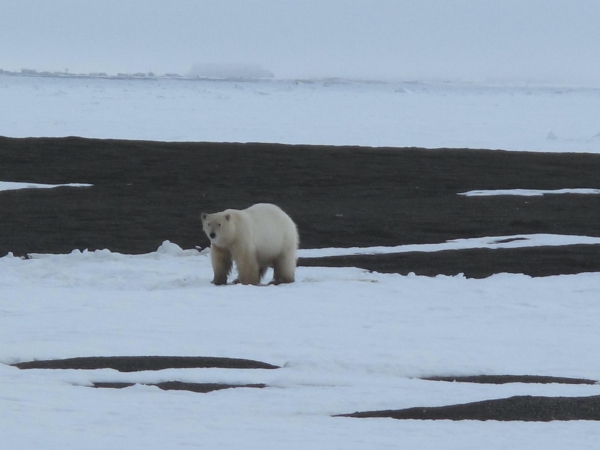In a recent paper, scientists wrote that a small population of polar bears living off Greenland and Arctic Canada increased by 1.6 times when they compared the numbers from the 1990s to 2013 and 2014. They concluded that lighter sea ice might have benefited the animals.
That’s because sunshine penetrates thinner ice better, which stimulates small living things. That means more food for seals, the main food of polar bears.
The scientists, led by Kristin Laidre of the University of Washington’s Polar Science Center, concluded in their May 25, 2023, paper in Endangered Species Research that “these benefits are likely temporary given predictions for continued climate change.” In the long run, they concluded, the further loss of ice means less of a platform from which polar bears hunt.
Read more at: University of Alaska Fairbanks
A polar bear feeds near a pile of whale bones north of Utqiaġvik. (Photo Credit: Ned Rozell)


